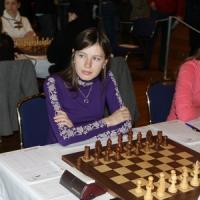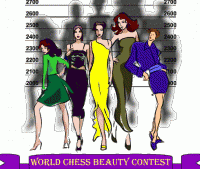
Smells like team spirit
Many people don't consider chess to be a team sport. And this opinion has its reasons. Chess is a game between two people. There are no assistants, only you and your opponent. So a team match can also be viewed as a few separate confrontations. What is so special about team play then? Each for him/herself, so will the individualists say.
But there is also a different point of view, which is supported by many people, including me. Chess has its own team play specifics. My opinion is based on other people's experience, as well as on my own. I have been playing in team events since I was a kid (and participated in the famous "White Rook" tournaments). Nowadays I play for the Russian chess team and various clubs. So I would like to tell you a bit about my take on team play and team spirit.

Russian Team, Chess Olympiad, Dresden, 2008
Women teams generally consist of 4 players. So, if the scoring system is traditional (2 points for victory in the match, 1 for a draw, 0 for a loss), then the results on each board are equally important. It's not possible to concentrate on your own position only - you have to monitor your colleagues' games and act accordingly. E.g. if your team is losing a match, you have to deviate from drawing continuations and push for a win. Or, let's say, you've got an excellent position, but the team needs a draw to secure an overall victory. You'll have to neglect your personal interests (rating gains, ambitions) and agree to a draw, even if you felt like winning.

Russian Team at the World Mind Sports Games, Bejing, 2008
Psychology often comes into play. For example, when one player wins quickly, his team-mates are encouraged, while the opponents become nervous. That's like a goal at the beginning of a soccer match. This has a great influence on the final result. One can think of many-many more examples that illustrate the specifics of team play, these are just two that jumped to my mind first.
Now let's talk a bit about team spirit. In chess the following situation occurs relatively often: there is team A that consists of extremely strong chess players who are individualists, and team B - "regular" players who are friends and support each other well. At the end of the tournament team A often has a worse performance than team B due to their low team spirit. Individualists care about their personal result only, and regularly let the team down, which leads to lower results. Chess Olympiads are a great example - a strong, but far from being clear favorite team from Armenia (e.g. at the 2008 Chess Olympiad they were ranked 9-th in the starting protocol) managed to win the competition twice in a row.

WGM Natalia Pogonina's favorite team - AVS
Summing it all up, I would like to share with you an episode from my chess practice that is very memorable to me. It happened at the Russian Team Chess Championship. Imagine the situation: last round, my game is the only one left. I need a win only to help my team qualify for the European Team Chess Championship. However, my position didn't look like I was going to make it...
Move 52, White to proceed. The position is a dead draw, attempts to play for a win may be severely punished, but I needed to clinch the victory. All my team-mates gathered around the board to help me both morally and physically - bring me chocolate and coffee. Matveeva's colleagues have probably decided that it's a draw anyway and have left her alone. So I was encouraged by my friends and felt energetic, while my opponent looked weary and tired.
Other cases of this type happened to me, and team spirit has always been one of the key factors.
As you can see, chess can be a very interesting team sport. When playing at team events you have to follow slightly different rules as compared to individual tournaments. So, I highly recommend you to participate in club events, feel the specifics of team play. It will help you to look from a different perspective not only at chess, but at yourself as well.

WGM Natalia Pogonina, the winner of Moscow Open-2009
Article written by WGM Natalia Pogonina, http://pogonina.com
Exclusively published at Chess.com before the official release






